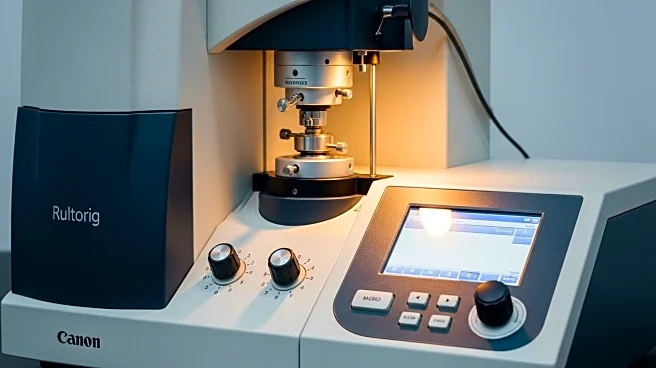What is the story about?
What's Happening?
A novel mechanical relaxation test method has been developed to determine the frequency-dependent complex modulus of linear viscoelastic materials. This method, validated through simulated models, provides accurate measurements of storage modulus and loss factor, crucial for understanding material behavior under stress. The test involves analyzing relaxation functions and comparing experimental data with fitted models, offering insights into the elastic properties of various materials. The study highlights the importance of frequency-dependent analysis in applications such as sound transmission loss in automotive panels and vibration dampers.
Why It's Important?
The advancement in testing methods for viscoelastic materials is significant for industries relying on precise material properties, such as automotive and construction. Understanding the complex modulus helps in designing materials that can withstand dynamic loads and vibrations, improving product durability and performance. This method allows for better prediction of material behavior, leading to more efficient designs and potentially reducing material costs. The ability to accurately measure and simulate material responses can drive innovation in material science, impacting various sectors that depend on viscoelastic materials.
What's Next?
The new test method opens avenues for further research into the mechanical properties of viscoelastic materials under different conditions. Industries may adopt this method to enhance product design and material selection, particularly in applications requiring sound insulation and vibration damping. Future studies could explore the impact of anisotropy and other factors on material behavior, expanding the applicability of the test method. As the method gains recognition, it may influence standards and practices in material testing, promoting more accurate and reliable assessments.
Beyond the Headlines
This development underscores the importance of advanced testing methods in material science, highlighting the role of accurate data in driving innovation. The ability to measure complex modulus with precision can lead to breakthroughs in material design, offering solutions to challenges in various industries. As the method is refined and adopted, it may contribute to a deeper understanding of material properties, fostering collaboration between researchers and industry professionals to address emerging needs in material science.















